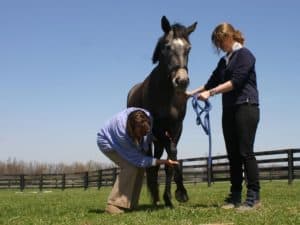On-Watch for WNV in the United Kingdom
It was nearly five years ago when U.S. scientists were caught unaware by the deadly West Nile virus (WNV) and faced the puzzle of how that virus would adapt to a naïve population of birds and mammals in our various climates. United Kingdom
- Topics: Article, West Nile Virus (WNV)
It was nearly five years ago when U.S. scientists were caught unaware by the deadly West Nile virus (WNV) and faced the puzzle of how that virus would adapt to a naïve population of birds and mammals in our various climates. United Kingdom researchers now are working to understand how the disease might behave in their country should they detect it, and figure out ways to handle the virus if it does invade.
A recent study completed by an Oxford research group determined some wild birds in the United Kingdom have already been exposed to WNV, perhaps in their migratory travels to North Africa or the Mediterranean. However, no tests have shown that any migratory or indigenous birds actually carry the disease. Graeme Cooke, MA, VetMB, MRCVS, veterinary policy advisor at the Department of Environment, Food, and Rural Affairs in the United Kingdom, said, “There have been no cases isolated in birds (the Oxford study birds have only shown antibodies against WNV, not the virus itself). We haven’t got any evidence that West Nile virus occurs in this country. There have been some cases in humans, which were travel related,” meaning that the victims were bitten by infected mosquitoes while visiting a WNV-endemic country.
According to Cooke, much like U.S. public health and veterinary officials use surveillance programs as an early warning or indicator of WNV presence in an area, U.K. officials have a surveillance scheme for WNV in place and will soon complete a contingency plan should WNV hit the country. Anywhere from 400-500 dead wild birds per year have been collected in recent years for WNV testing, and none of the birds were found to be infected with WNV.
The most recent European outbreak of WNV was last year in France. Cooke said that past French outbreaks included animal and bird infections, but the 2003 outbreak caused several human cases. There is now a heightened awareness of WNV and its behavior in Europe
Create a free account with TheHorse.com to view this content.
TheHorse.com is home to thousands of free articles about horse health care. In order to access some of our exclusive free content, you must be signed into TheHorse.com.
Start your free account today!
Already have an account?
and continue reading.

Written by:
Stephanie L. Church, Editorial Director
Related Articles
Stay on top of the most recent Horse Health news with












